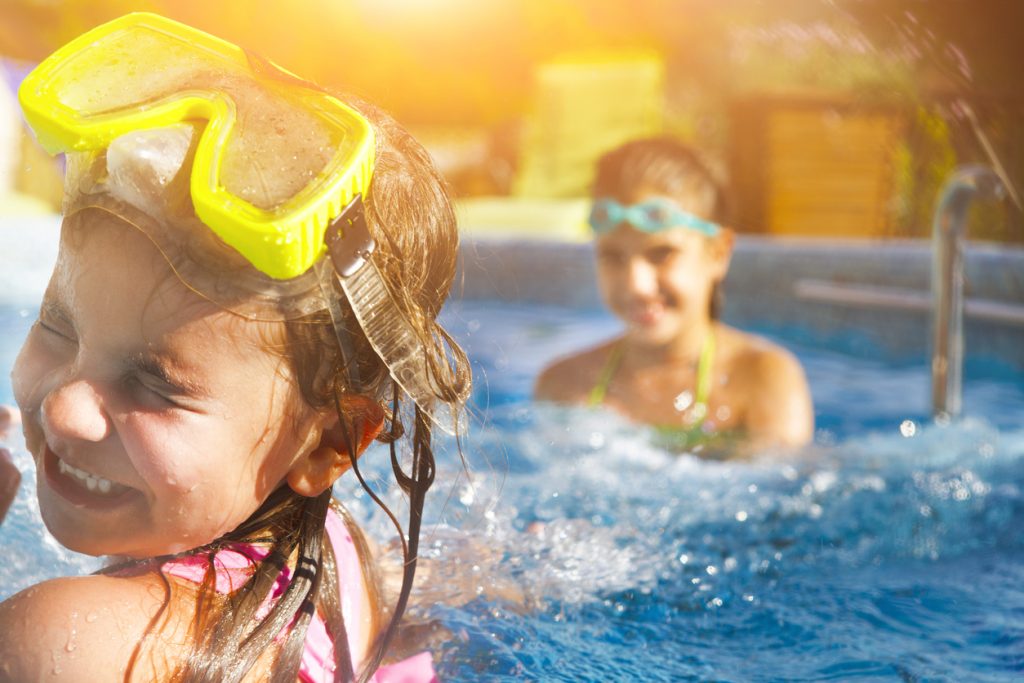Injured at a Swimming Pool in Georgia? Here’s How to Get Compensation
Key Points:
- In the State of Georgia, both public and private pool owners are required to adhere to specific safety regulations mandated by law.
- If you wish to pursue a personal injury claim as the result of a pool injury, you must demonstrate that the negligence of the property owner directly resulted in the accident.
- Claims against city-operated pools are often the most difficult to win. This is because they benefit from governmental immunity and the protections of the Georgia Recreational Property Act.
- Consulting a personal injury attorney can provide clarity on your potential eligibility for compensation after sustaining injuries at a pool.
Table of Contents
With the warmth that we experience in Georgia, pools are popular and common in our communities. While most pool outings go smoothly, the blend of deep water and slick surfaces can sometimes spell danger for unprepared guests. Pools, despite their allure, can be a hotspot for injuries, ranging from minor scrapes to tragic fatalities.
Pool-related injury claims have their own nuances within the personal injury legal framework. The legal standard is pivotal in these cases, helping determine accountability for any mishap. In Georgia, claims arising from pool injuries are governed by premises liability law, mandating property owners to uphold specific safety standards for their visitors.
How to Know if You Have a Pool Injury Liability Claim
In order to determine whether you have a legitimate legal claim for pool injuries, you must first identify the responsible party. This can be more challenging than you might imagine since multiple may share in that responsibility. The claim will hinge on who is at fault and what insurance will provide coverage for the injuries.
Was the Pool Injury Caused By Horseplay?
Many pool accidents are caused by horseplay. If a victim was engaged in rough, boisterous play when the accident happened, he or she may be found personally negligent for causing his/her own injuries. Examples of this might be ignoring wet spots, running on the pool’s deck, or diving into areas clearly marked as “no diving” zones. In cases such as these, the pool owner may not be held responsible for injuries.
Was it an Unattended Minor that Was Injured at the Pool?
If a minor suffers an injury in a pool accident, their parents or guardians may be held responsible for failing to supervise them. Should the parents or guardians have entrusted an organization or group to watch over their child, that entity might be liable for the accident. However, property or pool owners often have a lower likelihood of being held accountable for injuries to minors.
Were any of the Supervisors Intoxicated or Distracted?
If lifeguards or designated supervisors are on duty and an injury occurs, the organization overseeing them may be held liable. To establish this, evidence must demonstrate that the supervisor was negligent in their duties. Negligence can manifest in supervisors being intoxicated or distracted. Tragically, in many pool drowning incidents, the quiet nature of the event coupled with a distracted or intoxicated supervisor can lead to the supervisors organization bearing the liability. If the homeowner was trusted to supervise, they would likely be held liable.
Was the Pool Injury Caused by a Slip and Fall on a Wet Surface?
By their very nature, pool areas are just wet. You cannot expect the owners of the pool to maintain a constantly dry environment. Many of the slip and fall accidents that happen in pool areas happen as the result of horseplay. However, if the owner of the pool leaves a slippery surface on the deck after cleaning and does not post a risk warning, a case might be made for negligence if you have the evidence.
Did Broken Parts, or Defective Equipment Contribute to the Accident?
Swimming pools have various components and equipment, including diving boards, slides, ladders, cleaning tools, vacuums, and more. If an accident happens and injuries result from broken or defects in any of these component parts, the owner might be held responsible. As an example, if somebody slips on an unsecured pool ladder or is cut by broken tiles at the bottom of the pool, the owner/operator of the pool might be found negligent for not repairing the problem. A pool owner is responsible to ensure the safety of their pool by preventing any broken items from harming their guests.
Did the Pool Pass a Proper Inspection?
In the state of Georgia, public swimming pools are required to obtain permits and are subject to regular inspections to ensure they adhere to health and safety standards set by the Georgia Department of Public Health. These rules encompass various aspects, from water quality to safety equipment. Before opening new public pools, a detailed plan review is typically mandated, and an initial inspection may be conducted post-construction.
On the other hand, private residential pools in Georgia are not usually subject to the same stringent health and safety inspections. However, they may need to meet local building codes when being constructed. Additionally, local county or municipal regulations might impose additional or stricter requirements, so consulting with local authorities is essential for specific pool regulations in any given area. Our attorneys can review the local building codes and if the owner failed to get an inspection, and one of the items on the inspection checklist could have prevented the accident, there is a higher possibility of a case.
Public and Private Liability Insurance Often Work to Avoid Payment
You must recognize that insurance companies work hard to avoid pay-outs. This is how they make their money, so it’s probable that they will attempt to minimize or eliminate your claim.
Every pool accident is different and the fault for the accident may be distributed among several individuals. Pool accident injuries inquiries are very often about negligence and liability however, as a result of the many factors that might be involved, it’s not likely that the insurance company will eagerly compensate you for your injuries. You will most likely have to fight for your compensation.
Public vs. Private Pools in Georgia – Why It Matters
According to Georgia law, all swimming pools, whether public or private, must follow specific safety regulations. For instance, all pools must be surrounded by a barrier or fence that conforms to specific requirements.
Because private pools are not open to the public, they are governed by a different set of standards, while public pools have more requirements under Georgia law.
If any of these safety measures have not been followed – at a private or public pool – the landowner can be held liable for resulting accidents.
Georgia Pool Codes That Impact Injury Legal Claims
The state of Georgia adopted the laws contained in the International Swimming Pool and Spa Code. This code is a model that regulates the requirements for the design, construction, and maintenance of swimming pools, spas, and other related facilities.
Georgia’s pool codes require viewable signage that alerts pool users of the many dangers around the pool. Pool signs and markings must indicate the following:
- No diving in shallow areas
- Depth markers
- No running on the deck
Failure to post the required viewable signage could be considered negligence on the part of the pool operator.
Public swimming pools are also required to comply with state sanitary guidelines, such as the requirement that the circulation equipment turns over the entire water capacity of the pool at a specified rate, not to exceed a total of six hours.
Pool codes and regulations seek to protect people from injuries and can help pool owners and operators avoid pool injury legal claims.
City-Operated Pool Injury Claims
Winning a pool injury claim against a city-operated pool is often the most difficult pool injury claim to win due to governmental immunity and the Georgia Recreational Property Act.
- Governmental immunity is a legal doctrine that prevents citizens from suing governmental officials and agencies in performing their governmental functions. A ruling in an important case in Georgia, Scott v. Millen, 153 Ga. App. 231 (1980) stated that the operation of public pools is primarily for public benefit as opposed to revenue, making it a governmental function. Because it is a governmental function, the city enjoys protection from negligence claims under governmental immunity.
- The Georgia Recreational Property Act states that an owner of a recreational property who invites or allows any person to use the property without charge for recreational purposes to be immune from suit.
If a city-operated pool has insurance coverage or there are private entities, such as a life guarding company, that can be sued for a pool injury claim, then you stand a better chance to recover for any injuries sustained.
HOA-Operated Community Pool
Homeowner’s Association (HOA)-operated pools are privately owned by the HOA entity itself or the owners within the HOA share ownership according to their agreements. However, if there are private entities that are employed by the HOA to maintain a safe and clean pool environment, those entities may be liable for any negligence resulting in pool injuries. HOA-operated community pool claims are often faced with the defense that pool users assume any risk when entering the pool to swim.
The Georgia Condominium Act requires HOAs to obtain a property insurance policy covering the premises dealing with damage or injury. A claim with the appropriate insurance company might be where you find success after suffering an injury at an HOA-operated pool.

 1201 West Peachtree Street #2339 Atlanta, GA 30309+1-770-212-3795$0-$100000
1201 West Peachtree Street #2339 Atlanta, GA 30309+1-770-212-3795$0-$100000What a great law firm! I truly enjoyed my experience with them. They continue to show why they are leaders in the industry. I strongly recommend them!

Private Pool Injury Claims
Under Georgia law, swimming pools are considered an “attractive nuisance.” This term is used for any features (e.g., swimming pools or playground equipment) that are likely to entice people, and most often children, onto a property to enjoy using the feature.

Private pool owners must be extra careful in ensuring that children cannot access the pool entirely without an adult’s help. Measures such as a locked fence or pool cover can help a private pool owner avoid liability in dealing with a pool injury claim.
The Georgia Recreational Property Act makes it difficult to sue a private pool owner if the owner allows people to use the pool recreationally without charge.
Any negligence on the part of the homeowner will likely need to be proven in order to win a financial recovery. To do so, you will need to present evidence to show that the private pool owner failed to comply with a legal duty, which resulted in injuries. When dealing with a pool injury claim, a private pool owner can be covered by their homeowner’s insurance.
Evidence for Pool Injury Claims
Eyewitness testimony often serves as the most compelling evidence in a pool injury claim. Those present at the time of the injury can offer valuable insights into the circumstances leading up to the accident.
Recordings of 911 calls, as well as police or medical reports detailing the incident, are also highly beneficial for pool personal injury claims. However, obtaining additional evidence from the pool vicinity can be challenging, as water might wash it away or the sun may cause it to evaporate.
The strength of your pool injury claim often hinges on the volume and quality of evidence supporting it. To understand the potential value of your claim, it's advisable to consult with an attorney experienced in such matters.
Check with a Lawyer to See If Your Pool Injury Is Actionable
Not all pool injury cases are actionable. Your claim must meet certain criteria for you to be eligible to receive compensation for any injuries sustained at a pool.
It is always a good idea to speak to an experienced personal injury attorney to help you fully understand your legal options in dealing with a pool injury case.















